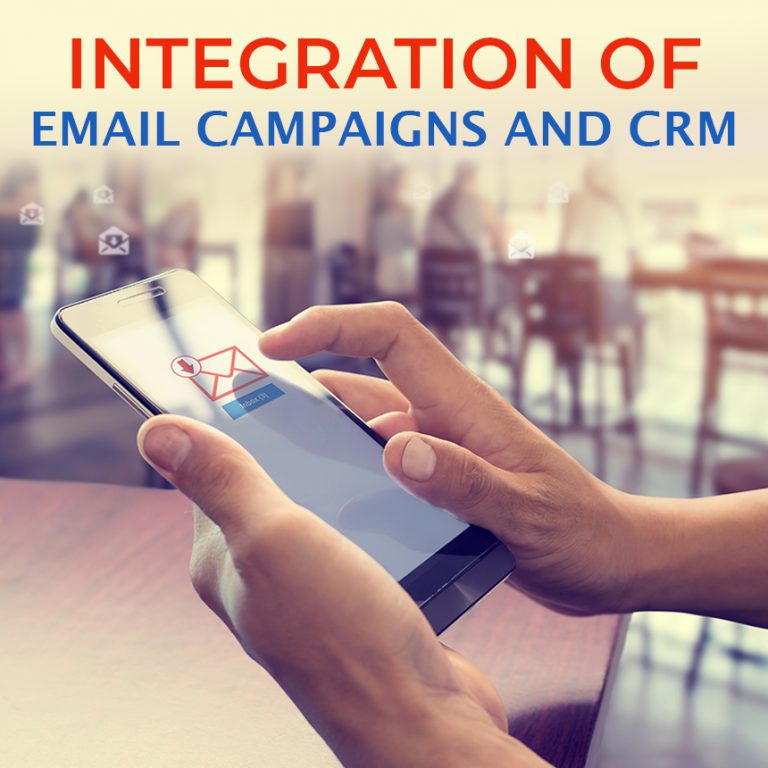
When small companies bring in advanced CRM tools to simplify and automate customer service and sales management, it results in higher productivity and efficiency.
But if email campaigns management teams are still functioning manually, companies won’t achieve the success at the rate and quality as they expect. It would be something like higher demand but low supply.
CRM tools would be sending more customer-related information to other departments, but other teams might not be as efficient and quick to utilize and take action as expected.
Hence, it’s the time when different business activities should start integrating their tools for smooth functioning and better output.
How do you integrate email campaigns with CRM?
- Select the right CRM system that offers report generation, storage feasibility options, segmentation, and allow using CRM data.
- Use all channels to collect data, such as opt-in forms, social media lead generation, emails, ads, and other traditional options.
- Update contacts and CRM data regularly to avoid discrepancies.
- Use segmentation and tags for more relevant and targeted campaigns.
- Use trigger actions to inform customers and subscribers via emails for renewals or updating subscriptions.
As the headline suggests, we will look into the benefits of integrating email campaigns with CRM tools:
- Increased Sales Opportunities: CRM tools keep track of how customers are engaging with your emails and what actions they take after receiving it. This data can help marketers to identify potential customers who are most likely to take expected action on their site.
- Better Return on Investment: Any campaign runs on a given budget, and you cannot blindly run campaigns for a broader audience selection. CRM tools help to narrow down the audience, which is expected to take actions (buy or sign-up). Hence, return on investment (ROI) for such campaigns would be higher than without integration.
- Targeted Communication: Email campaign strategy can be designed based on the CRM data, such as demographics, job title or previous purchases to personalise and serve relevant contents in the emails to the customers. This strategy could lead to action-driven campaign delivering better results.
- Data Management and Integrity: Real-time data update by the sales team and data centralization for easy access by other teams could allow easier data management and automation. Integration would allow both the systems to be in sync leading to data integrity.
- Triggered Actions: As soon as any new update is created or if it’s the end of the trial period, existing members/customers can be sent an automated email to share information for further action.
You need to integrate CRM and Email campaigns not only for your business but also for your customers. More relevant and personalized emails mean better business and more customer satisfaction. It would not be new for you if we say “satisfied customers tend to be loyal to any business”.


